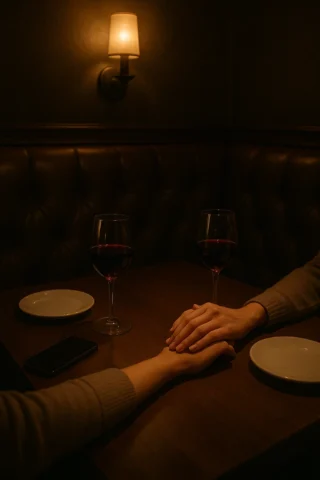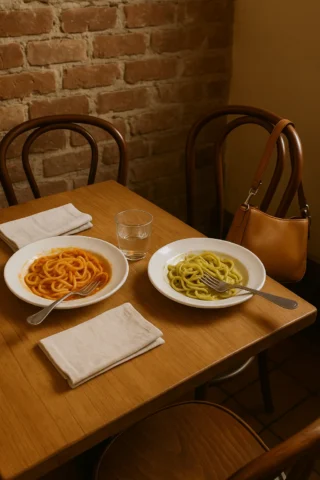My best friend, Ava, and I had a tradition: we never missed each other’s birthdays. Over the years, we’d celebrated in all kinds of ways—fancy dinners, weekend trips, even a surprise party she threw for me on my 25th. So when my birthday rolled around this year, I assumed she’d be there, just like always. Instead, she texted me the night before to say she couldn’t make it.
The Excuse
Her message was short: “I’m so sorry, work has been insane. I just need a night to catch up on rest. Let’s celebrate soon.” I told her I understood, even though I was disappointed. It wasn’t like her to miss something important, but I figured everyone needs a break sometimes.
I spent my birthday evening surrounded by other friends, eating cake and laughing. But every time my phone lit up, I hoped it was Ava, sending a photo of flowers or a quick call to say happy birthday.
The Post
The next morning, while scrolling through Instagram, I saw her face. Not in a casual at-home selfie, but in a group shot taken at a rooftop bar—the caption tagged the location, timestamped exactly during my party. She was out with a group of friends I barely knew, holding a drink and smiling like she’d been having the time of her life.
It felt like a punch to the gut. She hadn’t stayed home to rest—she’d chosen to be somewhere else entirely.

Processing the Hurt
At first, I told myself there must be an explanation. Maybe it was a work event she couldn’t skip. But as I looked closer, it was clear this was purely social—celebrating another friend’s promotion.
What stung wasn’t just that she’d missed my birthday—it was that she hadn’t been honest about why. If she’d told me she had another event, I still would have been hurt, but at least I wouldn’t have felt lied to.
The Conversation
I decided not to text in anger. Instead, I waited two days before reaching out. “Hey,” I wrote, “I saw your post from Friday night. I thought you were staying in?”
Her reply came quickly: “Oh, yeah… that was last minute. I didn’t want to upset you by saying I couldn’t make it because of something else.”
I stared at the screen, realizing she thought lying would be kinder than the truth. But the truth, no matter how uncomfortable, would have hurt less than discovering it on my own.
The Bigger Issue
The more I thought about it, the more I realized this wasn’t just about one missed birthday. It was about trust. Our friendship had always been built on honesty—celebrating each other’s wins and showing up, even when it wasn’t convenient.
Her choice told me that she didn’t value my day—or my trust—the way I’d valued hers.
The Distance
After that conversation, things between us changed. We still talked occasionally, but the easy closeness we’d had was gone. I didn’t bring up my birthday again, but I also stopped making plans around the idea that she’d be there.
And when her birthday came around a few months later, I sent a simple text instead of planning a big celebration. It wasn’t out of spite—it was just a reflection of where we stood now.
Lessons I Learned
That experience taught me that showing up for people isn’t just about being physically present—it’s about being honest when you can’t be. It also reminded me that friendship is a two-way street. If one person starts treating it like a convenience instead of a commitment, it won’t feel the same for long.
Final Thought
When someone chooses not to be there for you, believe them. And when they show you that they’d rather tell you what you want to hear than the truth, believe that too. The strongest friendships are built on honesty, even when it’s uncomfortable.



